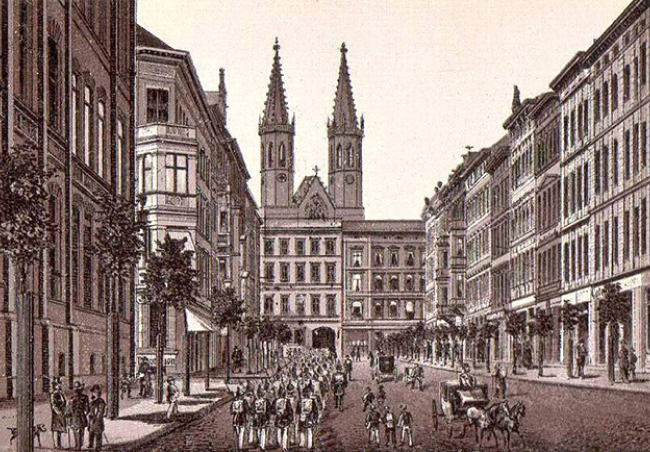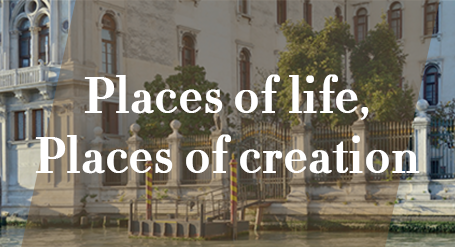
Wagner, the first European composer! If the name of the composer sounds more German than the noun “Germany”, the artist, himself always in search of notoriety and success that he could not find within the borders of the German Empire, exiled in his younger years to find recognition… elsewhere. And these new horizons, Wagner would seek them from London to Saint Petersburg, passing by Paris, Venice or Zurich, places that were as much living places as places of musical creation and artistic inspiration.
Magdeburg
It was at the invitation of the Magdeburg Bethmann Theatre Company that Wagner took on the position of music director of the company during the 1834 summer season in Bad Lauchstädt, where the troupe gave performances during the summer.
Right away, everything displeased Wagner in this provincial town, especially the presence of the “spa clients” who went there on holiday to treat their ills… and especially their artistic tastes. Wagner’s aversion to these occasional cultural shows would later guide his choice of the small town of Bayreuth (which is not a “spa town”) as the composer would express in a letter.
So rejection of the town and the people taking the waters, but it was nevertheless in Bad Lauchstädt that Wagner met Minna Planer for the first time; the young actress of the Magdeburg troupe, who was twenty-five, performed there with some success.
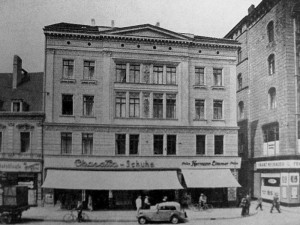 From 4 to 29 August, 1834, while he was temporarily excused by the troupe to treat an erysipelas and work on the draft of a new Symphony in E major as well as an opera project, The Ban on Love (Das Liebesverbot), he continually received visits from Minna, whose troop had travelled to Rudolstadt. The young woman was smitten with the talented conductor. The liaison between Wagner and Minna gradually transformed into a love affair.
From 4 to 29 August, 1834, while he was temporarily excused by the troupe to treat an erysipelas and work on the draft of a new Symphony in E major as well as an opera project, The Ban on Love (Das Liebesverbot), he continually received visits from Minna, whose troop had travelled to Rudolstadt. The young woman was smitten with the talented conductor. The liaison between Wagner and Minna gradually transformed into a love affair.
It was not until the season opening of the Magdeburg Theatre company, namely on 10 October, 1834, that Wagner officially made his debut as music director of the company. From the first months of him taking up his post, Wagner was warned of the difficulties the troupe had in raising the funds necessary for the conduct of the season. Due to the lack of adequate financial means, the troupe continually threatened to disband. Despite all that, Wagner believed in the future of his theatre, even going as far as investing his own personal property to save his company or going to Leipzig during the spring of 1835 so as to plead the cause of the Theatre and hope for any financing.
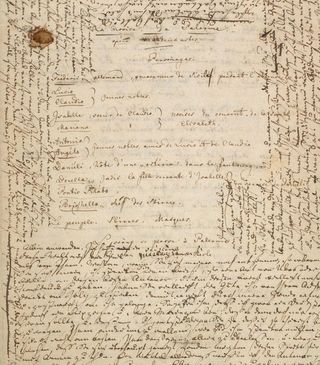 In these particularly difficult circumstances, Wagner wrote the libretto and composed the music for The Ban on Love (Das Liebesverbot), an opera that reconnects with the Franco-Italian style – in accordance with the tastes of the public at the time – and with which Wagner hoped to get the theatre company rescued financially. He also hoped to make a name for himself, since despite the promises that were made to him in Leipzig, The Fairies (Die Feen), the first opera that the composer completed along the same lines as Weber, was not performed.
In these particularly difficult circumstances, Wagner wrote the libretto and composed the music for The Ban on Love (Das Liebesverbot), an opera that reconnects with the Franco-Italian style – in accordance with the tastes of the public at the time – and with which Wagner hoped to get the theatre company rescued financially. He also hoped to make a name for himself, since despite the promises that were made to him in Leipzig, The Fairies (Die Feen), the first opera that the composer completed along the same lines as Weber, was not performed.
In Mein Leben, the composer wrote about The Ban on Love : “I worked both to establish my reputation and to restore my material situation; I took advantage, with extraordinary zeal, of the rare hours I spent with Minna to put the finishing touches to my score. “
Minna, moreover, showed signs of fatigue with the relationship she had with this fiancé (the engagement happened in January 1835) who fought as much as he could to save his troupe’s future. The first tensions in the relationship, which led Minna to temporarily leave the composer and the troupe to move to Dresden, then to Berlin, where she joined the theatre company Königstadt.
The year 1835 meant for Wagner the attempt at a tour de force: the music director got the promise to receive “a rather tidy sum” (Mein Leben) from donations from a support committee of the Magdeburg bourgeoisie. From then on, Wagner multiplied the trips to Leipzig, Dresden, Bad Kösen then to southern Germany (this was his first visit to Nuremberg and … to Bayreuth!) in order to recruit new singers to reassemble the Magdeburg Theatre company (which disbanded in May 1835) and to have his Ban on Love performed.
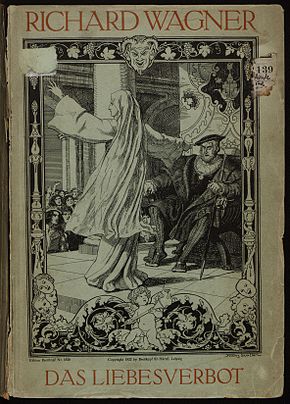 Back in Magdeburg in the autumn of 1835, Wagner tried to give new life to the town theatre (while multiplying the writing of passionate letters in the hope of bringing Minna back to their relationship). Now “at the head of a really excellent opera troupe” (Mein Leben) with artists recruited during his travels and encounters (one can note a quite similar procedure to the one the composer would set up later in order to recruit his singers for the first Ring performance of the Bayreuth Festival in 1876), Wagner, conductor and music director of a theatre and carefully selected singers, explored a new repertoire, experimented with a few musical “essays” (notably while performing the opera Jessonda by Ludwig Spohr, created a few years earlier in 1823).
Back in Magdeburg in the autumn of 1835, Wagner tried to give new life to the town theatre (while multiplying the writing of passionate letters in the hope of bringing Minna back to their relationship). Now “at the head of a really excellent opera troupe” (Mein Leben) with artists recruited during his travels and encounters (one can note a quite similar procedure to the one the composer would set up later in order to recruit his singers for the first Ring performance of the Bayreuth Festival in 1876), Wagner, conductor and music director of a theatre and carefully selected singers, explored a new repertoire, experimented with a few musical “essays” (notably while performing the opera Jessonda by Ludwig Spohr, created a few years earlier in 1823).
In January 1836, Wagner put an end to the composition of The Ban on Love, his own opera, and with it the hope of saving both the composer and the troupe, that equally eked out a living as much as the other. It was also the moment when the composer saw the (first!) return of Minna at home.
Unfortunately, the preparations to stage the opera were catastrophic: the rumors of a new dissolution of the troupe, for lack of funding, polluted the rehearsals.
The Ban on Love was finally performed for its first time on 29 March, 1836, after having been rehearsed and staged in just ten days. The production of the work (its initial version lasting nearly five hours) was a resounding failure: the troupe was so ill-prepared to perform a work of such proportions that the principal interpreter forgot the majority of his score. The second performance, given to an audience of only three people, had to be cancelled even before the curtain rose, as a brawling erupted between the tenor and the prima donna’s husband!
After the troupe broke up for the second time, Wagner left Magdeburg, on 18 May, 1836, full of rancour and bitter both because of the failure of his opera and because of the energy expended to no avail to try to save a theatre group on the brink of bankruptcy. In a letter to Robert Schumann, Wagner wrote: “Here there is nothing but bastards! Farewell, my dear Schumann! “
NC.
If you wish to share further information about this article, please feel free to contact us !
